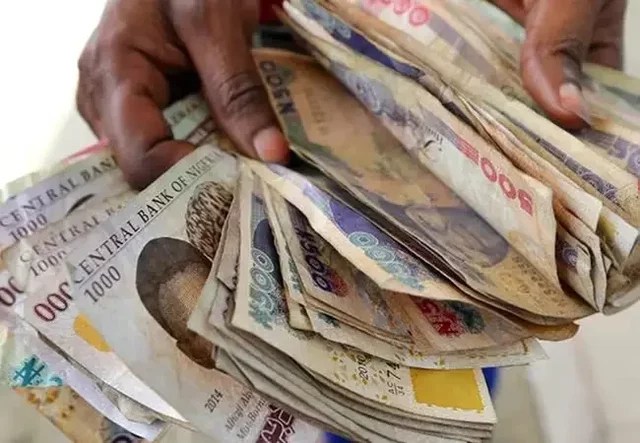Depreciation: Trans-border Traders Reject Naira

Following the depreciation of the Nigerian currency(Naira) in the past few months, further setbacks have hit the West African market region’s local currency as trans-border traders have started rejecting the currency….CONTINUE READING
Vanguard findings across the Seme border show that the traders on both sides are now preferring either the CFA or the domestic currency of the non-francophone countries.
Hitherto, Naira ruled the sub-region as the dominant currency accepted as a medium of exchange by traders across the borders due to the high volume of trade between those countries and Nigeria.
The Nigerian currency traded in the status of convertibility in the unofficial payment systems of the countries.
However, Vanguard’s findings indicated that the Naira began sliding from that status in February, hitting the point of outright rejection in March 2024.
Some of the traders interviewed by Vanguard included Nigerians. They lamented that holding Naira has become a huge risk as the value keeps depreciating since last year with the worst rate of depreciation recorded last month.
Official reports indicate that Naira which traded above N1/1.5CFA in the first quarter of 2023 dropped sharply to N1/0.9CFA in the second quarter and N1/0.8CFA in the third quarter 2023.
After a moderate stability through the fourth quarter 2023, it opened 2024 at N1/ 0.66067CFA in January 2024.
However, following a second wave of depreciation in February, the sub-regional fortune went down drastically to N1/0.38308CFA before hitting a new low of N1/0.37595CFA last week.
The traders are already hedging against further depreciation although there’s a slight improvement in the last few days.
However, the Naira is still not close to what it used to be in the subregion some years ago. The development is adversely affecting the cost of goods imported into Nigeria through the West African economies. Consequently, the traders are recording a lull in business activities on both sides of the border towns in Nigeria and the Benin Republic.
Some border markets in Benin-Nigeria visited showed that most of the money changers or Bureau De Change, do not display the Nigerian currency like they did last year.
Even transporters and bike riders otherwise known as Okada in Nigeria, across the borders declined payment in Naira, saying that by the time they return to convert Naira to CFA, they would have lost some fraction of their earnings. Consequently, they said CFA was safer to hold.
A bike rider, Ibrahim Yakubu, who took our correspondent from the Seme border into the ‘Misebo’ market (about 45 kilometres from the border) refused to accept Naira and insisted on collecting his payment in CFA.
Yakubu also said that before now, the Naira was strong adding that it was easily accepted as a means of payment for goods and services.
A money changer, Taiye Ekiti blamed the development on the United States Dollar adding that the cost of Dollar was the reason for the depreciation of the Naira in Benin Republic and other countries including Togo and Ghana, adding that they as Bureau De Change are equally as helpless as other business people.
A Nigerian trader who deals in fairly used clothing, Mr. Achi Collins, said that most traders do not accept Naira anymore, adding “that is how much the Naira has lost value over time.”
Collins also said that most traders would tell their customers to change their money to CFA before they can accept it as payment for goods.
He however, added that around the border town of Seme, there could be few traders that still accept Naira for payment but their goods cost more.
He also noted that inside the cities of Benin Republic, Naira is not acceptable because of the value when compared to the strengthening of the CFA.
He further stated: “If you want to buy something here you will go and change your Naira to CFA before you buy whatever you want.”
Before now, Naira was accepted on the west coast, up to Ivory Coast and Senegal. Traders freely spent Naira in many countries of West Africa. Nigerian sports journalists who covered sports events in Benin Republic, Togo, Ghana, Senegal and Ivory Coast spent Naira in the markets of these countries. Naira was stronger than CFA then. Those days are gone. The naira is now rejected in these countries.





